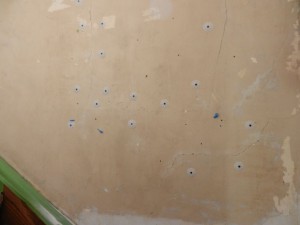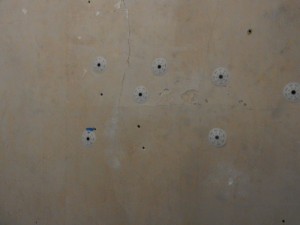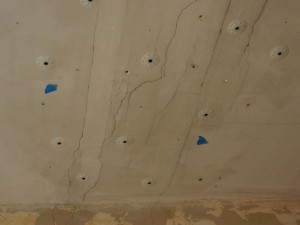Because of our love of old buildings and our desire to preserve them, our painting and decorating company is called on to restore old plaster, especially in Chicago’s old neighborhoods and the North Shore.
Cracks in plaster deter many house painting contractors from even submitting a bid for the project. The reason is first that plaster restoration requires specialized knowledge, materials and techniques. Second, plaster restoration is also difficult to estimate, because the scope of the repairs is not entirely known until you start doing the work.
The clients who hire us to restore their old plaster value the many qualities of lath plaster. They are usually not interested in having it look like smooth drywall. They like it unevenness, the imperfections and signs of aging that plaster develops over time. It is part of the “cachet” of an old house to them.
Our clients are however very interested in preserving the integrity of their plaster surfaces. Properly repairing cracks is especially important. When cracks develop on plaster surfaces, it means that some of the keys that attach the plaster to the lath have broken off. This allows the plaster to pull away from the lath and crack off. To deal with this problem, we use a system called “ Big Wally’s Plaster Magic ”. The process consists of drilling holes in the plaster to reach the lath (without drilling through the lath), injecting a liquid conditioner in those holes, then injecting an adhesive in the same holes so it can get between the plaster and the lath. The final step consists of using screws and over-size plastic plaster buttons to reattach the plaster to the lath. The next day, the screws and buttons can be removed and cracks can be repaired in the normal fashion.
Depending on the condition of the surfaces, an average size room can take between 16 and 32 hours to perform the plaster restoration. When completed, the surfaces are stable again and they look beautiful. Plaster restoration is not cheap, but the result is well worth the effort.










 Follow
Follow
